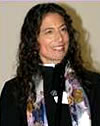 When elements of the recent Pew study on Hispanic religiosity were first published last summer, a number of my colleagues in movements for social justice were surprised. Many were also worried.
When elements of the recent Pew study on Hispanic religiosity were first published last summer, a number of my colleagues in movements for social justice were surprised. Many were also worried.
According to the study (conducted by the Pew Hispanic Center and the Pew Forum on Religion & Public Life), 15% of the Hispanic community identifies as evangelical (which goes up by generation – a much higher percentage of Latinos are evangelical in the second generation than among immigrants.) Even more surprising for many of my non-Latino friends was that 34% of Hispanics identify as charismatic/evangelical Catholics (whose services and many of whose spiritual practices and faith disciplines are indistinguishable from non-Catholic evangelicals.) The implications? A little less than half of all Latinos in the U.S. are pursuing a form of faith that centers around a personal relationship with Jesus, ecstatic worship, direct experience of miracle (particularly miracles of healing) devotion to personal and small group Bible study, disciplined personal morality, and a strong network of mutual care among the members of the church.
As a member of the Hispanic community myself, a Lutheran pastor who has served Spanish-speaking congregations, and an organizer who works daily with Hispanic Catholics, I’m not surprised. I am also not worried, although I think that we are in a moment of opportunity and danger.
My companions in the struggle for economic and social justice are worried about the frequent correlation in the larger American culture between religious faith with these characteristics and a blatant disregard for the human and sacred rights of the poor and oppressed. My Hispanic, non-Christian comrades know the history of colonialism and how often a similar kind of religion has been used to distract and tranquilize the oppressed so that they can be more easily exploited. They have a point.
However, they are deaf and blind to the beauty of the movement of the Spirit in the Latino community at this historic, kairos moment, and the hope it could bring to this country. Why do we think that oppressed people will be less able and less likely to fight for justice if they are healed and strengthened by the intimate love of Jesus, the gifts of the Spirit, the care of their community? Couldn’t the opposite be true? The study also noted that the single greatest complaint of Hispanic congregants is that their leaders didn’t involve them enough in ministry to the community. The Bible is full of the call to economic and social justice – over 600 verses at my last count. If we who know the dangers of colonial interpretations take up the mantle to teach, we have a slowly awakening giant in our hands – one who could offer a new vision to the American people, a holistic vision of faith that integrates personal joy and healing, integrity, mysticism, the transforming power of scripture, real community, and the ancient progressive prophetic vision of justice. Andale!

Rev. Alexia Salvatierra is the Executive Director of CLUE (Clergy and Laity United for Economic Justice), an organization of religious leaders in Los Angeles county who support low-wage workers in their struggle for a living wage, health insurance, fair working conditions and a voice in the decisions that affect them.
